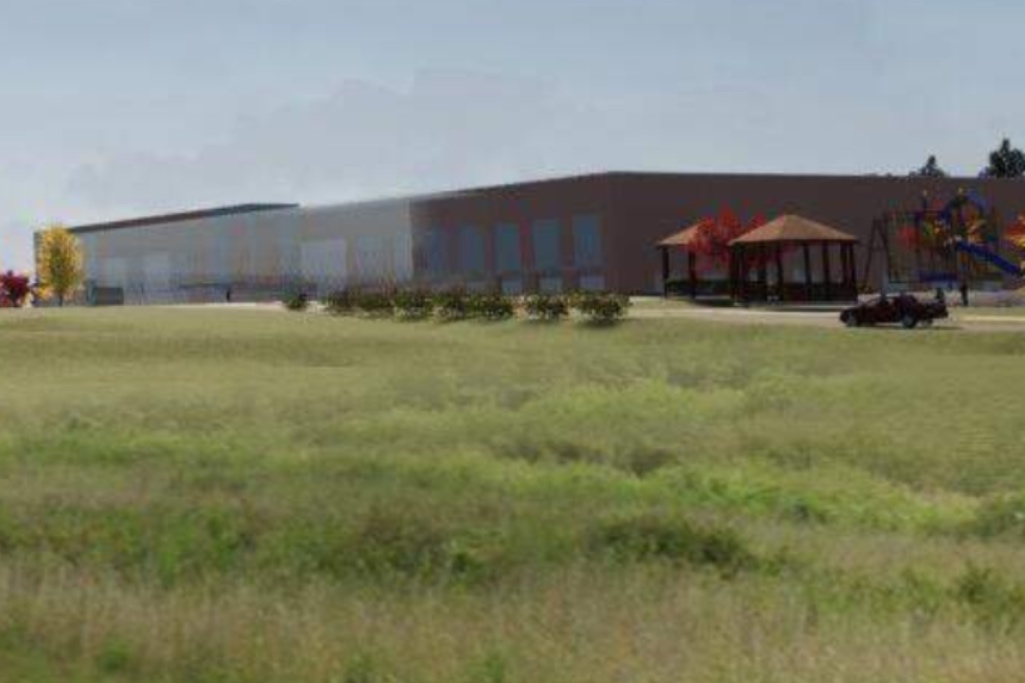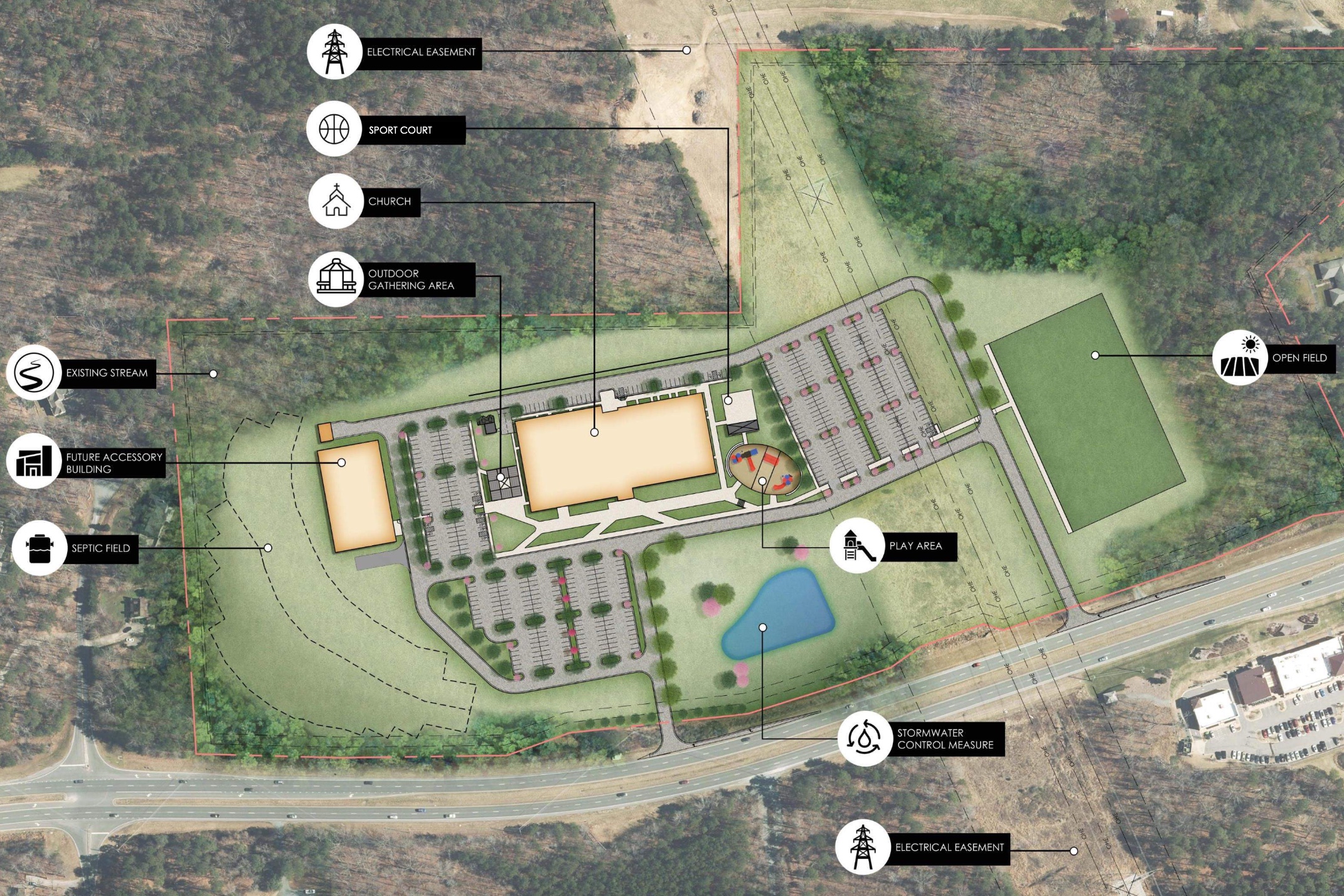
Architectural rendering of a proposed new campus of The Summit Church in Chatham County, N.C. The county’s Board of Commissioners denied The Summit’s rezoning request in December 2024.
DURHAM, N.C. — Attorneys for the Chatham County Board of Commissioners have filed a motion to dismiss a lawsuit by The Summit Church that alleges a rezoning request submitted by the church was denied by the county for religious reasons.
The motion, filed Thursday, March 27, asks the U.S. Middle District Court to dismiss the lawsuit because attorneys for the county say the court lacks jurisdiction to hear and rule on the case.
“Courts can rule on the validity of a zoning decision, but they do not have the ‘power to determine the ultimate zoning classification’ or ‘direct a legislative body to enact legislation,’” a memorandum accompanying the county’s motion said, citing other legal cases. “Here, the Plaintiff seeks a remedy that the Court cannot properly grant.”
Attorneys for the county also said in their filing that The Summit Church “lacks standing” to bring the suit, and the suit is “unlikely to succeed on the merits of its claims.”
The Summit Church brought a lawsuit against the Chatham County Board of Commissioners on Feb. 14, two months after the board voted unanimously in December 2024 to deny the church’s request to rezone three parcels of land to build a permanent location for its campus in nearby Chapel Hill, which currently meets in a local high school. The Summit Church is a multisite congregation that has 13 campuses across the Triangle region of North Carolina.
The Summit Church is seeking a preliminary injunction that would require the county to approve the church’s zoning request because its option to purchase the land it is seeking to have rezoned expires at the end of June. However, attorneys for Chatham County contend in its filing that the court does not have the authority to rule on the matter.
“This Court, however, lacks the authority to issue such a mandate to the Chatham County Board of Commissioners,” the county’s filing said in opposition to the church’s request for a preliminary injunction. “Local governments in North Carolina ‘have been delegated the power to rezone their territories and restrict them to specified purposes by the General Assembly.’”
In its lawsuit, The Summit Church claims the county’s decision violated provisions of the Religious Land Use and Institutionalized Persons Act (RLUIPA) of 2000, a federal law that protects individuals, houses of worship and other religious institutions from discrimination in zoning and landmarking laws.
RLUIPA prohibits zoning and landmarking laws that place a substantial burden on the church’s religious exercise, treat religious assemblies and institutions unequally, discriminate on the basis of religion, place unreasonable limitations on religious assemblies, institutions and structures, or exclude religious assemblies from a jurisdiction.
In documents filed with their motion, attorneys for the Chatham County Board of Commissioners say the county’s decision to deny The Summit Church’s rezoning request was not based on religious reasons, nor was it based on any negative comments about the church’s beliefs submitted to the county during the public comment period. Attorneys for the county also said The Summit’s rezoning application followed normal processes and procedures.
“In addition to the lack of evidence to indicate any impermissible bias influencing the decision to deny the zoning applications, there is no evidence that Chatham County departed from procedure in reviewing the applications,” the county’s filing said.
According to the case docket, attorneys for The Summit Church have until April 10 to respond to the county’s opposition to the preliminary injunction and April 17 to respond to the county’s motion to dismiss the lawsuit.
On Thursday, April 3, attorneys for The Summit Church filed a motion requesting an extension until April 17 to submit a response to the county’s opposition to the preliminary injunction.

